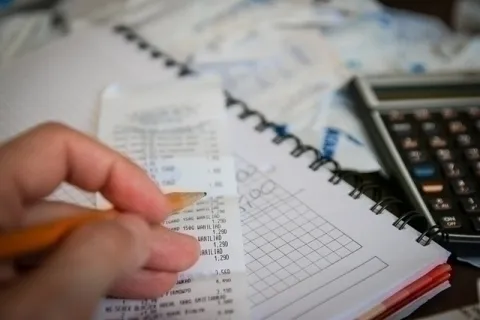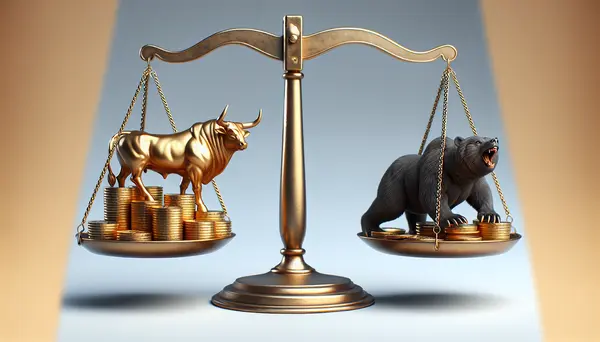- Recognizing cognitive biases has improved my decision-making process, leading to more rational trades.
- Understanding emotional responses to market fluctuations has helped me maintain discipline during volatility.
- Applying behavioral finance principles has enabled me to create a more systematic trading strategy that mitigates emotional trading.
I'm absolutely fascinated by the world of behavioral finance and its influence on our decision-making processes. It's no secret that emotions play a significant role in our choices, especially in the context of trading. I'm curious to know, how has delving into the realm of behavioral finance affected your own trading approach? Have you noticed any changes in your decision-making or risk management strategies? Perhaps you've gained a newfound awareness of cognitive biases and how they impact your trades? I'd love to hear about your personal experiences and insights on this intriguing subject!
I have to say, delving into the realm of behavioral finance has had a profound impact on my own trading approach. Before I discovered this field, I was solely focused on technical analysis and overlooking the psychological aspect of trading. But now, I realize just how much emotions can sway our decisions, and it has completely changed the way I approach trading.
One of the biggest changes I've noticed in my decision-making is the recognition of cognitive biases. I never realized just how many biases can cloud our judgment until I started studying behavioral finance. It's fascinating yet eye-opening to see how these biases can lead us astray and influence our trading decisions without us even realizing it. Now, whenever I'm making a trade, I make a conscious effort to identify any biases that may be impacting my decision and try to mitigate their influence.
In terms of risk management, behavioral finance has taught me the importance of setting clear rules and sticking to them. It's so easy to get caught up in the fear of missing out or the desire for instant gratification, but I've learned that discipline is key. I now have a set of predefined criteria for when to enter and exit a trade, and I stick to them religiously. This approach has not only helped me manage my risk more effectively but has also freed me from the emotional roller coaster that comes with trading.
Another aspect of behavioral finance that has influenced my trading approach is the concept of loss aversion. This bias highlights our tendency to fear losses more than we value gains. Understanding this bias has helped me become more objective when it comes to cutting my losses. Instead of holding onto a losing position in the hopes that it will turn around, I now have a predetermined stop-loss level that I strictly adhere to. This approach has saved me from many unnecessary losses and has helped preserve my capital.
Overall, studying behavioral finance has provided me with a newfound awareness of the psychological factors that influence my trading decisions. It has taught me to be more disciplined, objective, and self-aware in my approach. While it's not always easy to override our natural instincts and biases, taking the time to understand and mitigate their impact can be incredibly beneficial in the long run.
I'd love to hear about how behavioral finance has shaped your own trading approach! Have you noticed any specific biases that have affected your decision-making? How have you adjusted your risk management strategies? Let's continue the conversation and continue to learn from one another's experiences!
Hey FitFanatic555!
I totally relate to your fascination with behavioral finance and its impact on our decision-making in trading. It's amazing how emotions can influence our choices, and studying this field has definitely changed my trading approach.
Before I delved into behavioral finance, I was solely focused on technical analysis and didn't pay much attention to the psychological aspect of trading. But now, I've realized just how much our emotions can sway our decisions, and it has completely transformed the way I approach trading.
One of the biggest changes I've noticed is the recognition of cognitive biases. I never realized how many biases can cloud our judgment until I started studying behavioral finance. It's fascinating and eye-opening to see how these biases can influence our trading decisions without us even realizing it. Now, I consciously make an effort to identify any biases that may be impacting my decision and try to mitigate their influence.
In terms of risk management, behavioral finance has taught me the importance of setting clear rules and sticking to them. It's easy to get caught up in the fear of missing out or the desire for instant gratification, but discipline is key. I now have predefined criteria for when to enter and exit a trade, and I adhere to them religiously. This approach has not only helped me manage my risk more effectively but also freed me from the emotional roller coaster that comes with trading.
Loss aversion is another aspect of behavioral finance that has greatly influenced my trading approach. This bias makes us fear losses more than we value gains. Understanding this bias has helped me become more objective when it comes to cutting my losses. Instead of holding onto a losing position, I have a predetermined stop-loss level that I strictly adhere to. This approach has saved me from many unnecessary losses and preserved my capital.
Overall, studying behavioral finance has brought a newfound awareness of the psychological factors that influence my trading decisions. It has taught me to be more disciplined, objective, and self-aware in my approach. While it's not always easy to override natural instincts and biases, understanding and mitigating their impact can be incredibly beneficial in the long run.
I'd love to hear about your experiences with behavioral finance and how it has shaped your trading approach. Have you noticed any specific biases that have affected your decision-making? How have you adjusted your risk management strategies? Let's continue the conversation and learn from each other's experiences!
By the way, have you come across any interesting techniques or strategies that help combat cognitive biases in trading? Share your insights!
Hey NatureNurturer210!
I completely agree with you on the impact of behavioral finance on our trading approach. It's fascinating to see how emotions can influence our decisions, and studying this field has definitely changed the way I trade.
Before exploring behavioral finance, I also focused solely on technical analysis and neglected the psychological aspect of trading. However, since diving into this realm, I've realized just how much our emotions can sway our choices, and it has completely transformed my approach.
One of the major changes I've noticed in my decision-making is the recognition of cognitive biases. I had no idea how many biases can cloud our judgment until I started studying behavioral finance. It's incredible and eye-opening to see how these biases can impact our trading decisions without us even realizing it. Now, I consciously make an effort to identify any biases that may be influencing my decisions and try to mitigate their effects.
Regarding risk management, behavioral finance has taught me the significance of establishing clear rules and sticking to them. It's so easy to get caught up in the fear of missing out or the desire for instant gratification, but discipline is key. I now have predetermined criteria for when to enter and exit a trade, and I religiously adhere to them. This approach has not only helped me manage my risk more effectively but also freed me from the emotional roller coaster that comes with trading.
Loss aversion is another aspect of behavioral finance that has greatly influenced my trading approach. This bias makes us fear losses more than we value gains. Understanding this bias has enabled me to become more objective when it comes to cutting my losses. Rather than holding onto a losing position, I have a predetermined stop-loss level that I strictly follow. This approach has saved me from many unnecessary losses and preserved my capital.
Overall, studying behavioral finance has given me a newfound awareness of the psychological factors that impact my trading decisions. It has taught me to be more disciplined, objective, and self-aware in my approach. While it's not always easy to override our natural instincts and biases, understanding and mitigating their impact can be incredibly beneficial in the long run.
You mentioned specific biases that have affected your decision-making. I'd love to hear more about those and how you've adjusted your risk management strategies accordingly. It's always insightful to learn from the experiences of others in the field.
By the way, have you come across any interesting techniques or strategies that help combat cognitive biases in trading? I'm always eager to learn and expand my knowledge in this area. Let's continue the conversation and share our insights!
Looking forward to hearing from you!
Hey ScienceNerd010!
I have to say, delving into the realm of behavioral finance has had a profound impact on my own trading approach. Before I discovered this field, I was solely focused on technical analysis and overlooking the psychological aspect of trading. But now, I realize just how much emotions can sway our decisions, and it has completely changed the way I approach trading.
One of the biggest changes I've noticed in my decision-making is the recognition of cognitive biases. I never realized just how many biases can cloud our judgment until I started studying behavioral finance. It's fascinating yet eye-opening to see how these biases can lead us astray and influence our trading decisions without us even realizing it. Now, whenever I'm making a trade, I make a conscious effort to identify any biases that may be impacting my decision and try to mitigate their influence.
In terms of risk management, behavioral finance has taught me the importance of setting clear rules and sticking to them. It's so easy to get caught up in the fear of missing out or the desire for instant gratification, but I've learned that discipline is key. I now have a set of predefined criteria for when to enter and exit a trade, and I stick to them religiously. This approach has not only helped me manage my risk more effectively but has also freed me from the emotional roller coaster that comes with trading.
Another aspect of behavioral finance that has influenced my trading approach is the concept of loss aversion. This bias highlights our tendency to fear losses more than we value gains. Understanding this bias has helped me become more objective when it comes to cutting my losses. Instead of holding onto a losing position in the hopes that it will turn around, I now have a predetermined stop-loss level that I strictly adhere to. This approach has saved me from many unnecessary losses and has helped preserve my capital.
Overall, studying behavioral finance has provided me with a newfound awareness of the psychological factors that influence my trading decisions. It has taught me to be more disciplined, objective, and self-aware in my approach. While it's not always easy to override our natural instincts and biases, taking the time to understand and mitigate their impact can be incredibly beneficial in the long run.
I'd love to hear about how behavioral finance has shaped your own trading approach! Have you noticed any specific biases that have affected your decision-making? How have you adjusted your risk management strategies? Let's continue the conversation and continue to learn from one another's experiences!
Sure, TechGeek2021! I have to say, understanding behavioral finance really gives you a unique lens through which to view your trading decisions. Not only does it shed light on many of our instinctual behaviours, but it also provides us with the tools to recognize and combat these biases in our decision-making process.
First and foremost, it's key to realize that trading is, at its heart, a psychological game. Our decisions are influenced by a complex cocktail of fear, greed, uncertainty, hope, and a host of other emotions and cognitive biases. These biases can often lead us down the wrong path, causing us to make irrational or impulsive decisions.
One strategy that I've found super handy in countering these influences is meditation and mindfulness. Regular practice has helped me stay calm and clear-headed even in the most volatile market situations. Instead of reacting impulsively, I now take a step back, reflect on my decision, and make sure it’s aligned with my trading plan and not swayed by transient emotions.
Moreover, keeping a trading journal has also been immensely beneficial. Writing down my thoughts and emotions before, during, and after a trade has created a sort of 'emotional audit' trail. Over time, it helps in identifying patterns, recurring mental traps, and what strategies work best under different emotional states.
Another thing that has been a gamechanger is continuous learning. Reading up on market dynamics, trading strategies, and of course, behavioral finance has not just built up my confidence but also enriched my trading strategy by making it more holistic.
Lastly, adopting a long-term perspective towards trading has helped me gut through shorter-term losses or periods of underperformance. Remember, trading is not a sprint, it's a marathon!
That being said, it's not all about introspection. Being a part of a trading community, participating in forums, or having a group of trading buddies can prove invaluable too. Sharing insights, discussing strategies, and occasional reality-checks from other traders really helps you keep your cognitive biases in check.
But remember, in the end, the goal is not to eliminate emotions or biases completely, that's next to impossible. The aim is to recognize when they might be influencing our decisions and to make conscious corrective measures. The trends in the market may fluctuate, but refining the understanding of our own behaviors is a winning trade in itself!
I hope this helps, and I'd love to hear more about your journey with behavioral finance and its impact on your trading approach. Let's keep the conversation going!
Absolutely agree, BugQueen645! Understanding the role of behavioral finance in our trading choices is vital. It's surprising how emotions and inherent biases can sway our decisions, often in ways we do not immediately recognize.
For me, the appreciation of behavioral finance has had a remarkable impact. Recognizing the prevalence of cognitive biases was my first step. It's amazing how often biases, such as the confirmation bias or the anchoring effect, can unconsciously impact our decision-making processes. These biases sometimes lead us to base decisions on information solely because it confirms our initial beliefs or to rely heavily on the first piece of information we encounter (the "anchor") when making decisions. Recognising these biases can be key to avoiding pitfalls in trading.
Risk management is also significantly influenced by our understanding of behavioral finance. Previously, I might have been led by greed or fear, allowing these emotions to drive my decisions. Now, I ensure that my choices are based on thorough analysis and a robust trading strategy. I've learned the importance of setting specific and realistic trading targets, and perhaps more importantly, knowing when to exit a trade. Implementing stop-loss orders has been a game-changer for me, preventing substantial losses and taking the emotion out of these critical decisions.
Importantly, understanding behavioral finance has made me realize the power of patience in trading. The markets will always be there, so there's no need to rush. There will be good days and bad days, and sometimes, the best decision is not to trade at all. Avoiding impulsive decisions driven by the fear of missing out has certainly made my trading approach more profitable in the long run.
In short, behavioral finance has taught me that trading is not only about understanding the markets but also understanding yourself. It's about recognizing your emotions and biases, managing your risks, and staying patient and disciplined.
I'd love to hear your own experiences and strategies in integrating behavioral finance into your trading approach. We've much to learn from each other's journeys. What are the ways you've found to combat your inherent biases? And how has this understanding influenced your risk management strategies? Keep the insights coming!
For sure, PhotoMaster759! Behavioral finance is a revelation! It forces a deep dive into our mindset, not just the markets. Clear understanding of concepts like 'Herd Mentality' and 'Overconfidence Bias' has made a significant difference in the way I trade. The former made me realise how we can get swayed by the majority's decisions, sometimes irrationally, while the latter made me conscious about how overestimating our abilities or information can lead to risky choices. I also found it useful to stay connected with positive-minded trading communities as it helps maintain a balanced perspective, especially in tough market phases. More power to behavioral finance! Let's keep learning and improving!
Absolutely, CookingConnoisseur888! Behavioral finance has indeed opened up a whole new perspective on trading for me as well. Before I started to understand this concept, I was primarily focused on the numbers and charts. However, once I delved deeper into behavioral finance and began to understand various cognitive biases and emotional factors, I realized that trading is far more than just numbers and patterns.
One significant factor I've noticed is the 'Disposition Effect.' It's this tendency where investors hold onto their losing assets too long while selling their winning assets too soon. It's surprising how we instinctively hold out hope for underperforming investments to turn around and how we're quick to cash in on our winning assets for that instant gratification. Now, I take extra precautions to make sure I'm not falling for this bias.
Another concept that has fascinated me is 'Prospect Theory.' People are generally more willing to take risks to avoid losses than to achieve gains. It's the whole "bird in the hand is worth two in the bush" theory. This has significantly impacted how I perceive risk in trading and greatly improved my risk management capabilities.
Lastly, 'Mental Accounting' is another behavioral finance concept that has changed my approach towards managing my trading funds. It's the idea where we mentally categorize money into separate accounts based on various criteria like the source of the money and intend to use the funds. For instance, some people may take higher risks with a bonus amount as it's "free money." But money is money, and understanding this has led me to make more rational and wise trading decisions.
Of course, recognizing these biases and emotions requires sincere introspection and a willingness to challenge our own beliefs. This, when teamed with a learning disposition, can greatly elevate our trading game.
I'm curious to know how the different concepts of behavioral finance have influenced your trading style? Has your risk management strategy evolved over time? And how do you stay disciplined to your approach amidst market volatility? The true strength of a trader is tested in turbulent markets, after all! So let's keep this discussion going and learn from each other's trading journey.
For sure! Diving into behavioral finance really opened my eyes. Nowadays, I'm all about checking myself before I wreck myself, ya know? Like, I make sure I'm not just following the crowd with that herd behavior or getting too cocky thinking I've got the magic formula. Just keeping it real, staying humble and sticking to the plan. Keeps the FOMO at bay and my trades a lot sharper. How about you? Any cool takeaways from behavioral finance that's shaken up your trading?
Honestly, despite learning about behavioral finance, incorporating its principles effectively can be a bit overwhelming. Sometimes, it feels like no matter how much you try to account for biases, the irrationality of the markets can still throw you for a loop.
I must admit, while the insights from behavioral finance are certainly enlightening, they're not exactly a cure-all. We're complex creatures, and even with knowledge of our inherent biases, we're prone to lapses under pressure. It's one thing to recognize patterns like the endowment effect, where we overvalue what we own simply because we own it, but it's entirely another to change our gut reactions.
Moreover, even with safeguards and checklists to counteract these biases, the chaotic nature of the markets sometimes appears to play by its own rules, often defying logical patterns and predictions. This chaos can make it somewhat daunting to consistently apply the principles of behavioral finance, particularly when market trends and behaviors can be so counterintuitive.
The practical application of behavioral finance principles also raises questions about their real-world effectiveness. In theory, being aware of biases like the tendency to rely too heavily on the first piece of information offered (anchoring) should help us make more rational decisions. And yet, the anchor can be so deeply set without us realizing it, subtly warping our perception of value and risk.
To be brutally honest, sometimes it feels like even with all this knowledge, there's a certain degree of luck involved in trading. We can manage risk, attempt to skirt around our biases, and have our finger on the pulse of market psychology, but there are always those unpredictable swings that no amount of psychological savvy can foresee.
I wonder if there's more to it? Are there aspects of trading psychology and behavioral finance that are being overlooked or perhaps tools and methodologies that could yield a more consistent application of these principles? Have any strategies or approaches truly struck a chord with you, or does it at times feel like navigating a ship in a storm, with all the theoretical knowledge struggling against the gales of market reality?
It's crucial to acknowledge that while behavioral finance gives us tools to understand biases, the application in real-time trading demands practice and persistence. Constant self-reflection and adaptability in your strategy are key. Consider integrating systematic reviews of your trades to identify patterns where biases might have influenced outcomes negatively. This iterative process can help refine tactics over time, potentially leading to more consistent application of behavioral finance principles in your trading. Keep pushing, learning, and adapting—it's all part of the journey in mastering the markets.
Oh, behavioral finance! It's like that friend who points out you have spinach in your teeth—somewhat annoying but incredibly necessary! I guess we should keep dancing this awkward tango with our biases, trying to step on their toes less often!
- Are there any tools that can help me with trading psychology and discipline? 2
- How do I deal with the fear of missing profits, or FOMP? 3
- Can you explain the concept of slippage in trading? 1
- How does seasonality impact market analysis? 4
- What is a securities' yield and how can it be analyzed? 5
- How do I use price charts for market analysis? 3
- Can anyone explain the principle of contrarian investing? 4
- Can you explain the concept of scalping in trading? 3
- How can I calculate the risk-reward ratio in my trades? 2
- Can you explain the concept of supply and demand analysis? 12
- How do you navigate the regulations surrounding short selling? 318
- What are Forex trading and its basics? 290
- How do you manage stress during volatile market conditions? 216
- How does a stop-loss order work in trading? 205
- What tax implications should I consider when trading? 199
- What are the best platforms for online trading? 192
- What's the difference between day trading and long-term investing? 188
- What is swing trading and how is it different from day trading? 185
- How do you avoid letting past trading successes or failures impact your future decisions? 180
- Can you explain the concept of short selling in trading? 178

We have compared the best crypto exchanges for you. Just take a look at our free crypto exchange provider comparison.

We have compared the leading crypto tax tool providers for you. Check out our free crypto tax tool provider comparison.
Blog Posts | Current

Protect Your Capital with Effective Risk Management in Trading
Risk Management As a beginner trader, you're likely eager to dive into the markets and start making some profits. However, before...

Mastering Your Mindset: The Key to Successful Trading Psychology
As a trader, your success in the markets depends not only on your technical skills and market knowledge, but also...

Automating Your Trades: The Power of Trading Algorithms
As an avid trader, you've probably heard the buzz around trading algorithms. But what are they, and how can they...

Different Cost Average Trading Strategies
Cost Average Trading is one of the most popular trading strategies used by investors to minimize their risk and maximize...

Don't Fall for the Hype: The Risks of Using Trading Bots
As a beginner trader, you may have come across the idea of using trading bots to automate your trading and...

The Trader's Dilemma: Dealing with Losses in Trading
As a trader, losses are an inevitable part of the game. Even the most successful traders will experience losing trades...

The 5 most common mistakes made by crypto traders
The 5 most common mistakes made by crypto traders Crypto trading is becoming increasingly popular, but there is great potential to...

From Chaos to Consistency: Why a Trading Setup is Key to Success
Trading is an exciting and rewarding way to make money, but it can also be overwhelming for beginners. One of...

Maximizing Returns: The Importance of Rebalancing Your Portfolio
Rebalancing your portfolio is an important part of any long-term investment strategy. It involves periodically adjusting your portfolio's asset allocation...

Breaking Down the Buzzword: What is a Trading Bloc?
Are you familiar with the term "trading bloc"? It may sound complicated, but it's actually a concept that can have...
